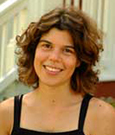
Anne Brunet
Stanford University School of Medicine
USA
EMBO | EMBL Symposium
EMBL is committed to sharing research advances and sustaining scientific interaction throughout the coronavirus pandemic. We are delighted to announce that this conference is going virtual and invite you to join us online.
Abstract submissions for oral presentations are no longer possible.
Metabolism and epigenetics are intricately linked, playing a key role in development, cancer, immune signalling and ageing. This symposium brings together world-leading researchers and young scientists to explore this nexus with a particular focus on how metabolites and metabolic networks impact gene regulation, on recently discovered roles of metabolites in disease and how this opens novel therapeutic avenues.
We will highlight enabling molecular and computational tools enabling detection of metabolites in time and space, shedding light on metabolism, and linking metabolism with the regulation of chromatin structure, gene activity and epigenetic inheritance. We will explore recent discoveries at the frontiers of metabolism and epigenetics — focusing at the intersection of these topics — achieved in vitro, in model organisms, inhuman, and in the environment. The goal of our interdisciplinary symposium is to strengthen the emerging connection between metabolism and epigenetics, inspire transformational ideas and help establish collaborations at this frontier of modern biology.
“I was delighted to discover new approaches in metabolism from the epigenetic and metabolomic perspective. This conference boosted my view about the potential of my research.” Dr. Manuel A. Fernandez-Rojo, Head of the Hepatic Regenerative Medicine Group, IMDEA-Food Institute, Spain
“The conference brought together great speakers and many open-minded young scientists from various fields. It sparked many fruitful discussions, helped to come up with new ideas and enabled me to look at my own PhD project from a different perspective.” Anna Nieborak, Helmholtz Zentrum München, Germany
“An outstanding conference on a timely subject. I learned from the experts how metabolic changes and epigenome influence each other.” Anand Swaroop, National Eye Institute, NIH, Bethesda, USA

Max Planck Institute of Immunobiology and Epigenetics, Germany

EMBL Heidelberg
Germany

EMBL Heidelberg, Germany
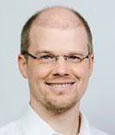
Research Center for Molecular Medicine (CeMM) of the Austrian Academy of Sciences, Austria
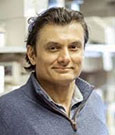
Northwestern University, USA

St. Jude Children’s Research Hospital
USA
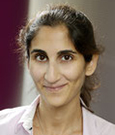
Institute Genomics Functional De Lyon, France

University of California, San Diego, USA

Ludwig Maximilian University of Munich, Germany
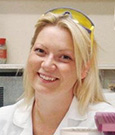
Harvard Medical School, USA

Icahn School of Medicine at Mount Sinai
USA

University of Oxford
UK

Imperial College London, UK

Johns Hopkins University
USA

Centre d’Immunologie Marseille-Luminy, France

Princeton University, USA

University of Queensland, Australia

University of Chicago, USA

EMBL Heidelberg, Germany

Ludwig Maximilian University of Munich, Germany

University of Oxford
UK
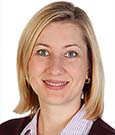
EMBL Heidelberg
Germany

EMBL Heidelberg
Germany
Got something to say? Tweet it #EESMetabolism
All times in the programme below are shown as the time in Europe (Berlin, Amsterdam, Paris).
To find out the equivalent time zone in your location, enter Berlin, the programme time and date along with your city into the Time Zone Converter.
| Time | Speaker |
| 15:00 – 16:00 | Pre-symposium webinar by Dovetail Genomics: Removing Restriction enzyme bias from your proximity ligation data with MNase (see the abstract in the Pre-symposium webinar tab) |
| Time | Speaker |
| 13:00 – 13:25 | Opening remarks by Scientific Organisers AVAILABLE ON DEMAND AFTER LIVE STREAM |
| 13:25 – 14:25 | Krebs Cycle and Macrophages Keynote: Luke O’Neill – Trinity College Dublin, Ireland AVAILABLE ON DEMAND AFTER LIVE STREAM |
| 14:25 – 17:50 | Session 1: Metabolism Chairs: Irene Miguel-Aliaga, Theodore Alexandrov |
| 14:30 – 14:55 | Sex differences in inter-organ metabolic crosstalk Irene Miguel-Aliaga – Imperial College London, UK AVAILABLE ON DEMAND AFTER LIVE STREAM |
| 14:55 – 15:20 | Glycolytic flux control of mouse embryo patterning and timing Alexander Aulehla – EMBL Heidelberg, Germany AVAILABLE ON DEMAND AFTER LIVE STREAM |
| 15:20 – 15:45 | Mitochondria as signalling organelles Navdeep Chandel – Northwestern University, USA LIVE STREAM ONLY |
| 15:50 – 16:05 | Break |
| 16:05 – 16:20 | Short talk 1: Age-selective inheritance of organelles regulates stem cell fate through metabolism Pekka Katajisto – University of Helsinki, Finland AVAILABLE ON DEMAND AFTER LIVE STREAM |
| 16:20 – 16:35 | Short talk 2: Metabolic enhancement of mammalian developmental pausing Vera van der Weijden – Max Planck Institute for Molecular Genetics, Germany LIVE STREAM ONLY |
| 16:35 – 16:50 | Short talk 3: Mitochondrial ADP-ribosylation controls nuclear PARP1-induced PARylation and PARP inhibitor efficiency Michael Hottiger – University of Zurich, Switzerland AVAILABLE ON DEMAND AFTER LIVE STREAM |
| 16:50 – 17:15 | MOF acetyltransferase associated complexes link epigenetics and metabolism Asifa Akhtar – Max Planck Institute of Immunobiology and Epigenetics, Germany LIVE STREAM ONLY |
| 17:15 – 17:20 | Transition |
| 17:20 – 17:50 | Panel discussion 1 Chairs: Irene Miguel-Aliaga, Theodore Alexandrov |
| 17:50 – 18:20 | Meet the speakers |
| 18:20 – 18:50 | Meet the editors – panel discussion with Maria Polychronidou – EMBO Press Krista Bledsoe – Molecular Cell Poonam Bheda – Nature Communications Arunima Singh – Nature Methods Christoph Schmitt – Nature Metabolism Mari-Carmen Fernandez-Aguera – Cell Metabolism Carolina Perdigoto – Nature Structural & Molecular Biology George Caputa – Nature Research |
| 18:50 – 19:20 | Social programme: speed networking |
| End of day 1 – Continued access to digital posters, networking and discussion platforms |
| Time | Speaker |
|---|---|
| 12:30 – 12:50 | Industry session |
| 13:00 – 15:50 | Session 2: Chromatin Chairs: Yad Ghavi-Helm, Andreas Ladurner |
| 13:05 – 13:30 | Deconstructing the Relationship between Chromatin, Metabolism and Gene Expression Jane Mellor – University of Oxford, UK AVAILABLE ON DEMAND AFTER LIVE STREAM |
| 13:30 – 13:55 | Regulating gene expression in 3D during embryonic development Yad Ghavi-Helm – Institute of Functional Genomics of Lyon, France LIVE STREAM ONLY |
| 13:55 – 14:10 | Short talk 4: Evolution of a histone variant involved in compartmental regulation of NAD metabolism Iva Guberovic – Josep Carreras Leukaemia Research Institute, Spain AVAILABLE ON DEMAND AFTER LIVE STREAM |
| 14:15 – 14:30 | Break |
| 14:30 – 14:45 | Short talk 5: Swi-Snf & Cys on the sulfur seesaw: Maintaining metabolic balance and oxidative stress tolerance through chromatin remodelling Michael Church – Stowers Institute for Medical Research, USA AVAILABLE ON DEMAND AFTER LIVE STREAM |
| 14:45 – 15:00 | Short talk 6: IDH mutations reveal the effects of PARP inhibition on replication of heterochromatin Juan Manuel Schvartzman – Memorial Sloan Kettering Cancer Center, USA AVAILABLE ON DEMAND AFTER LIVE STREAM |
| 15:00 -15:15 | Short talk 7: Ageing-related changes in liver metabolic zonation are accompanied by spatial shifts in transcription and chromatin accessibility Peter Tessarz – Max Planck Institute for Biology of Ageing, Germany AVAILABLE ON DEMAND AFTER LIVE STREAM |
| 15:20 – 15:50 | Panel discussion 2 Chairs: Yad Ghavi-Helm, Ian Maze |
| 15:50 – 16:50 | Break and digital poster session Topics: Metabolism, Chromatin and Disease (live chats and video calls with poster presenters) |
| 16:50 – 20:00 | Session 3: Tools and systems analyses Chairs: Jan Jakub Żylicz, Erika Pearce |
| 16:55 – 17:20 | Metabolism as a self-regulated system Joshua Rabinowitz – Princeton University, USA LIVE STREAM ONLY |
| 17:20 – 17:45 | Exploiting dynamic enhancer landscapes to decode macrophage phenotypes in health and disease Christopher Glass – University of California, San Diego, USA AVAILABLE ON DEMAND AFTER LIVE STREAM |
| 17:45 – 18:10 | Integrating metabolism with systems immunology in immunity and disease Hongbo Chi – St. Jude Children’s Research Hospital, USA AVAILABLE ON DEMAND AFTER LIVE STREAM |
| 18:10-18:35 | Spatial single-cell metabolomics reveals metabolic cell states Theodore Alexandrov – EMBL Heidelberg, Germany AVAILABLE ON DEMAND AFTER LIVE STREAM |
| 18:40 – 18:55 | Break |
| 18:55 – 19:10 | Short talk 8: Single embryo metabolome and transcriptome analysis uncovers dynamic events during early Drosophila development Heidi Lempradl – Van Andel Institute, USA AVAILABLE ON DEMAND AFTER LIVE STREAM |
| 19:10 – 19:25 | Short talk 9: Impacts of nutritional histories in juvenile stages on the adult lifespan of Drosophila Tadashi Uemura – Kyoto University, Japan LIVE STREAM ONLY |
| 19:25 – 19:30 | Transition |
| 19:30 – 20:00 | Panel discussion 3 Chairs: Jan Jakub Żylicz, Erika Pearce |
| 20:00 – 20:30 | Meet the speakers from Session 2 and 3 |
| 20:30 – 21:00 | Social programme: virtual bar mixer |
| End of day 2 – Continued access to digital posters, networking and discussion platforms |
| Time | Speaker |
|---|---|
| 13:00 – 16:25 | Session 4: Immunometabolism Chairs: Andreas Bergthaler, Matt Sweet |
| 13:05 – 13:30 | Lydia Lynch – Harvard Medical School, USA |
| 13:30 – 13:55 | Polymerase III transcription and CK2 activity are necessary for T cell priming by dendritic cells Philippe Pierre – Centre d’Immunologie Marseille-Luminy, France LIVE STREAM ONLY |
| 13:55 – 14:20 | Histone deacetylases as molecular switches controlling mitochondrial fission and host defence pathways in macrophages Matt Sweet – University of Queensland, Australia AVAILABLE ON DEMAND AFTER LIVE STREAM |
| 14:20 – 14:45 | Mitochondrial Shape-Shifting in T Cells Erika Pearce – Johns Hopkins University, USA LIVE STREAM ONLY |
| 14:50 – 15:05 | Break |
| 15:05 – 15:20 | Short talk 10: Myeloid transglutaminase-2 governs anti-helminth immunity by regulating succinate and arginine metabolism Fiona Henkel – Technical University of Munich and Helmholtz Center Munich, Germany AVAILABLE ON DEMAND AFTER LIVE STREAM |
| 15:20- 15:35 | Short talk 11: A non-classical retinoic acid signalling axis regulates hematopoietic stem cell identity Katharina Schönberger – Max-Planck-Institute of Immunobiology and Epigenetics, Germany AVAILABLE ON DEMAND AFTER LIVE STREAM |
| 15:35- 15:50 | Short talk 12: Investigating the epigenetic regulation of intra-tumour metabolic heterogeneity in triple-negative breast cancer Marina Fukano – University of Montréal, McGill University, Canada LIVE STREAM ONLY |
| 15:50 – 15:55 | Transition |
| 15:55 – 16:25 | Panel discussion 4 Chairs: Andreas Bergthaler, Matt Sweet |
| 16:25- 17:25 | Break and digital poster session Topics: Tools and systems analyses, Immunometabolism and Epigenetics (live chats and video calls with poster presenters) |
| 17:25 – 20:30 | Session 5: Disease Chairs: Anne Brunet, Philipp Pierre |
| 17:30 – 17:55 | Regulation of T cell immunity by immunometabolites Andreas Bergthaler – Research Center for Molecular Medicine of the Austrian Academy of Sciences, Austria AVAILABLE ON DEMAND AFTER LIVE STREAM |
| 17:55 – 18:20 | Protein monoaminylation in brain: novel mechanism of neural development, plasticity and disease Ian Maze – Icahn School of Medicine at Mount Sinai, USA AVAILABLE ON DEMAND AFTER LIVE STREAM |
| 18:20- 18:35 | Short talk 13: Visualizing metabolic and epigenetic transitions during stem cell differentiation in intestinal cancer Maria Rodriguez Colman – University Medical Center Utrecht, The Netherlands AVAILABLE ON DEMAND AFTER LIVE STREAM |
| 18:40-18:55 | Break |
| 18:55 – 19:10 | Short talk 14: When pyruvate metabolism meets the epitranscriptome: importance for Leigh Syndrome Laurent Le Cam – INSERM Montpellier, France AVAILABLE ON DEMAND AFTER LIVE STREAM |
| 19:10 – 19:25 | Short talk 15: Methyl group management in adaptation to mitochondrial disease Anastasiia Marmyleva – University of Helsinki, Finland AVAILABLE ON DEMAND AFTER LIVE STREAM |
| 19:25 – 19:40 | Short talk 16: Metastasizing breast cancer cells (CSCs) rely on acetyl-coa for colonization of the lung Megan Young – Swiss Institute for Experimental Cancer Research, École Polytechnique Fédérale de Lausanne, Switzerland AVAILABLE ON DEMAND AFTER LIVE STREAM |
| 19:40- 19:55 | Short talk 17: The pyruvate-lactate axis modulates cardiac hypertrophy and heart failure Ahmad Cluntun – The University of Utah, USA AVAILABLE ON DEMAND AFTER LIVE STREAM |
| 19:55- 20:00 | Transition |
| 20:00 – 20:30 | Panel discussion 5 Chairs: Anne Brunet, Philipp Pierre |
| 20:30 – 21:00 | Meet the editors and meet the speakers – Session 4 and 5 in individual breakout rooms with |
| End of day 3 – Continued access to digital posters, networking and discussion platforms |
| Time | Speaker |
|---|---|
| 13:00 – 17:20 | Session 6: Epigenetics Chairs: Jane Mellor, Andreas Ladurner |
| 13:05 – 13:30 | Lactate‐mediated Histone Lysine Lactylation: Chemistry, Proteome and Biochemistry Yingmin Zhao – University of Chicago, USA AVAILABLE ON DEMAND AFTER LIVE STREAM |
| 13:30 – 13:55 | Transcriptional, epigenetic and metabolic regulatory pathways in the first days of development Jan Jakub Żylicz – University of Copenhagen, Denmark LIVE STREAM ONLY |
| 13:55 – 14:20 | Biochemical basis for NAD-metabolite-regulated activation of nucleosome remodeling by the oncogene ALC1 Andreas Ladurner – Ludwig Maximilian University of Munich, Germany LIVE STREAM ONLY |
| 14:25 – 14:40 | Break |
| 14:40 – 14:55 | Short talk 18: Metabolic-epigenetic regulation of taste sensation by diet Monica Dus – University of Michigan, USA AVAILABLE ON DEMAND AFTER LIVE STREAM |
| 14:55 – 15:10 | Short talk 19: Intergenerational hormesis is regulated by heritable 18S rRNA methylation Eric Greer – Harvard Medical School, Boston Children’s Hospital, USA AVAILABLE ON DEMAND AFTER LIVE STREAM |
| 15:10 – 15:25 | Short talk 20: Reprogramming of early embryos: the first meeting between metabolism and epigenetics Jessica Ispada – UFABC, Brazil AVAILABLE ON DEMAND AFTER LIVE STREAM |
| 15:25 – 15:40 | Short talk 21: Targeting acetyl-CoA metabolism attenuates the formation of fear memories through reduced activity-dependent histone acetylation Desi Alexander – University of Pennsylvania, USA AVAILABLE ON DEMAND AFTER LIVE STREAM |
| 15:40 – 16:40 | Epigenetic and metabolic regulation of stem cell ageing Keynote: Anne Brunet -Stanford University School of Medicine, USA LIVE STREAM ONLY |
| 16:40 – 16:50 | Transition |
| 16:50 – 17:20 | Panel discussion 6 Chairs: Jane Mellor, Andreas Ladurner |
| 17:20 – 17:35 | Break |
| 17:35 – 18:05 | Meet the speakers |
| 18:05 – 18:35 | Closing remarks LIVE STREAM ONLY |
Registration Fees (include access to all of the talks, digital poster sessions and online group discussions, and help us cover our costs to run the event. For further information please refer to the FAQ page):
| Academia | 190 Euro |
| PhD Student | 140 Euro |
| Industry | 240 Euro |
| EMBL Staff | Intranet access |
Accredited journalists may be eligible to register for complimentary registration. Registrants may be required to provide accreditation or equivalent proof of press membership after registration. Please contact Inna Bösselmann for more information.
Registration will be on a first-come first-served basis. Your place can only be confirmed after payment of the registration fee.
Types of payments accepted are international bank transfers and credit card payments.
Only registered participants are eligible to submit an abstract. We only accept online abstract submissions.
After registration you can submit your abstract via a separate link that will be provided in the email confirmation. Alternatively, you can access the link on the confirmation page directly after registering. The same login credentials are used for both processes.
Please note:
Title: The title should not exceed 20 words. Only the first word of the title should start with a capital letter and the rest of the title should be in lowercase.
Authors and Affiliations: Please fill in the author’s details as requested in the online form. The compulsory details are: First Name, Last Name, Organisation Name (Affiliation or Company), Country and Email. Mark only one author as the role of First author and please don’t forget to indicate who will be presenting. The order of the authors will be listed as follows: First Author, Co-First Author (alphabetically if multiple), co-author(s) (in the order added by the submitter).
Presentation Types: When submitting your abstract, you can apply for an oral or poster presentation. A selection process will take place with the results announced 2-3 weeks after the abstract submission deadline.
Please check our FAQs pages for further information on how to submit an abstract.
Registration Fee Waivers
All academic and student registrants are invited to apply for a registration fee waiver, provided by the EMBL Advanced Training Centre Corporate Partnership Programme and EMBO. The registration fee waiver covers the registration sum that you have paid to attend the meeting. Conference participants are not required to pre-pay the registration fee to be selected for a fee waiver for a virtual meeting. If you have already paid the registration fee and are awarded a fee waiver, it will be reimbursed after the meeting. Course participants are required to pay the course fee in advance, which will then be reimbursed after the course to the fee waiver recipients.
Childcare Grants
For participants and speakers with childcare responsibilities, there is the possibility to apply for a grant, provided by the EMBL Advanced Training Centre Corporate Partnership Programme, to offset childcare costs incurred when participating in a virtual event. Eligible costs include fees for a babysitter or childcare facility or travel costs for a caregiver. Please note that priority will be given to early-stage researchers. Costs will be reimbursed after the meeting only once a reimbursement form and original receipts have been received. Attendance at the event is required in order to be eligible to receive the reimbursement. In order to apply for this grant, you must be registered by the abstract submission deadline.
Registration Fee Waivers
You may apply for financial assistance when submitting your abstract for this conference. In your application you will be asked to answer questions regarding your motivation for applying, reasons why your lab cannot fund your attendance and how your attendance will make a difference to your career. Application for financial support will not affect the outcome of your registration application.
Childcare Grants
Participants registered by the abstract deadline will be emailed information about the childcare grants. You should apply for the grant by the deadline specified in the email.
The scientific organisers will select the recipients of registration fee waivers during the abstract selection process. Results will be announced approximately 3 – 4 weeks before the event start date. Selection results do not impact your admission to the meeting. Registration fee waiver selection is based on your current work or study location, your motivation for applying, the reasons for needing financial support and the impact this event will have on your career. Childcare grants are allocated based on career stage, with priority given to early stage researchers.
For further information about financial assistance please refer to the FAQ page.
Please do:
Please don’t:
Additional information can be found in our Code of Conduct.
It is important to stay healthy and move around, especially when you are attending an event virtually. We have put together a few coffee break stretches and yoga videos. You can find these under ‘resources’ on the conference platform.
Please use the Q&A function. It is possible to send a direct message to participants, poster presenters, and speakers within the conference platform.
If you have any other questions, you can go to the Help Desk on the conference platform. Click on ‘more’ on the top menu and click Help Desk.
The programme is planned based on Central European Time (CET) or Central European Summer Time (CEST) unless otherwise stated. As many virtual participants are attending from around the world, we do our best to accommodate as many timezones as possible when creating the programme. Please take your time zone into consideration when planning your attendance. Remember to set your time zone in your account.
We are using a virtual event platform for this conference. More information about the platform will be shared ahead of the conference.
Silver Sponsor
Event Sponsors
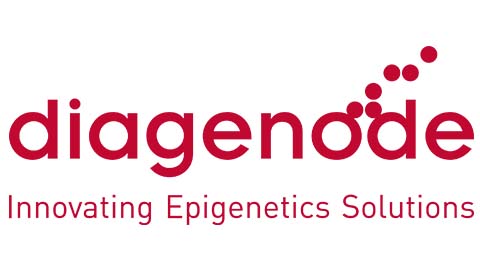
Media Partnership
Open Biology, a Royal Society journal
International Union of Biochemistry and Molecular Biology
EMBO Journal, an EMBO Press journal
Sponsorship Opportunities
We offer a variety of event sponsoring possibilities, with the flexibility to select a set sponsorship package or combine individual sponsorship options to suit your event budget. Discounts are available for companies sponsoring multiple events at EMBL Heidelberg. View other conferences, or contact sponsorship@embl.de for further information.
If you are interested in becoming a media partner of this event, please visit our media partnerships webpage.
EMBL wishes to warn sponsors of EMBL conferences and courses of fraudulent schemes purporting to offer sponsorship opportunities on behalf of EMBL or affiliated with EMBL officials. One current scam campaign of which we are aware is conducted using the name ‘Judy Eastman’ (judy@gopcontact.a2hosted.com) and entails approaches to sponsors offering sponsorship opportunities on EMBL’s behalf. Please be kindly advised that all relevant communication regarding sponsorship of EMBL conferences, symposia and courses is handled by EMBL directly and is sent from an official EMBL account. EMBL does not work with any external providers on sponsorship acquisition.
Please also note that:
Suspicious communications purportedly from, for or on behalf of EMBL should be reported to EMBL at the following email address sponsoring@embl.de.
Pre-symposium webinars will take place
on Tuesday, 16 November 2021 at 15:00 – 16:00 (Berlin / Germany)
Participation in this webinar is free of charge for registered symposium attendees. The number of available places is limited (first come, first served). All registered conference attendees will receive an email with a registration link.
Speaker: Cory Padilla, Dovetail Genomics
Careful and deliberate packaging of the genome is essential to ensuring correct and timely transcriptional programs. Chromatin conformation capture (3C and Hi-C) is a powerful approach for capturing the long-range chromatin interactions that directly influence gene expression.
However, traditional Hi-C approaches suffer on a reliance on Restriciton Enzymes (REs) for fragmentation, introducing a bias towards RE cut sites.
The Micro-C approach removes this bias by using micrococcal nuclease (MNase) to fragment the entire interacting chromatin into mononuclesomes.
This talk will focus on:
Date: 17 - 20 Nov 2021
Location: Virtual
Deadline(s):
Abstract submission: Closed
Registration: Closed
Organisers:
Contact: Inna Boesselmann